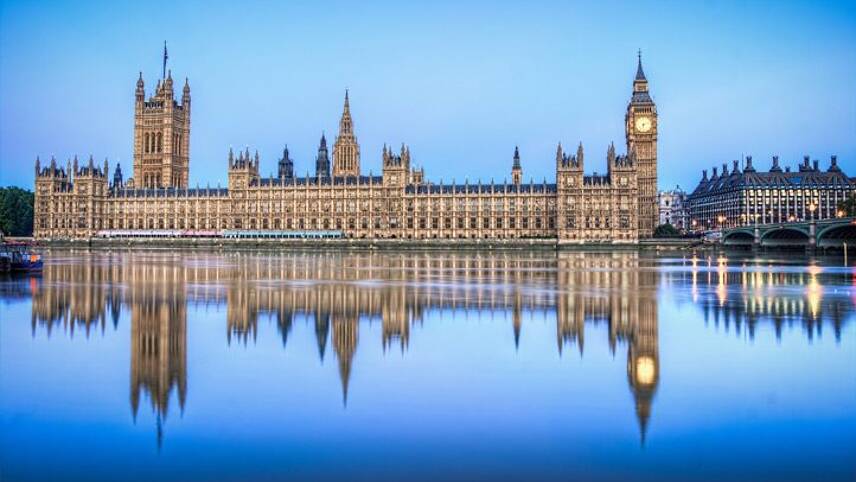Register for free and continue reading
Join our growing army of changemakers and get unlimited access to our premium content

The new target meets the recommendation of the Climate Change Committee
The UK officially unveiled a target to reduce emissions by 68% by 2030, compared to 1990 levels, on Thursday night (3 December). The target will act as a Nationally Determined Contribution (NDC) to the Paris Agreement, which determines the required domestic action each country must take to help deliver on the global agreement.
The UK will officially communicate its full NDC to the United Nations Framework Convention on Climate Change (UNFCCC) as part of the Climate Ambition Summit it is hosting on 12 December. As hosts of the next climate summit – COP26 – it is hoped that the UK’s NDC will signal a flurry of similar commitments from other nations.
The new target meets the recommendation of the Climate Change Committee (CCC), which advised on the net-zero target for 2050 and is set to publish guidance on future carbon budgets imminently.
Prime Minister Boris Johnson said: “We have proven we can reduce our emissions and create hundreds of thousands of jobs in the process – uniting businesses, academics, NGOs and local communities in a common goal to go further and faster to tackle climate change.
“Today, we are taking the lead with an ambitious new target to reduce our emissions by 2030, faster than any major economy, with our Ten Point Plan helping us on our path to reach it. But this is a global effort, which is why the UK is urging world leaders as part of next week’s Climate Ambition Summit to bring forward their own ambitious plans to cut emissions and set net-zero targets.”
Answering calls
The UK’s original NDC was a 53% reduction by 2030 and was submitted as part of the European Union and while pushing towards an 80% reduction in emissions by 2050, rather than the new net-zero target that has since been enshrined into law.
The announcement comes ahead of the UK co-hosting the Climate Ambition Summit later this month. Marking the fifth anniversary of the Paris Agreement, the summit will act as a call to action for other countries to resubmit NDCs ahead of next year’s COP26 summit in Glasgow.
It could also see the Government face questions on progress against existing carbon budgets. The nation is currently off-track to meet the next set of carbon budgets, which will likely be updated following CCC advice.
But, globally, momentum is starting to shift to net-zero. Following the US election, more than 60% of global carbon emissions are set to be covered by a net-zero ambition. In September, Japan and South Korea pledged to legislate for net-zero by 2050 and, previously, the UK, EU and New Zealand have set the same deadline. China, the world’s largest emitter, has committed to reaching peak net emissions by 2030 and to achieve carbon neutrality by 2060. Having the world’s two largest emitters – the US and China – realigned in agreement on the need to reach net-zero with mobilise more radical climate action. All will have to resubmit NDCs following the setting of those targets.
As for the UK, the setting of the NDC follows months of calls for the target to be set before the end of the year.
Business groups including The Prince of Wales’s Corporate Leaders Group, the Aldersgate Group, Institutional Investors Group on Climate Change, UK Green Building Council, The B Team, We Mean Business, UK Business Council for Sustainable Development, academics, religious groups, politicians and youth activists have all called for the target.
The business groups have welcomed the Government’s decision to publish a comprehensive Net-Zero Strategy in the lead up to COP26. The Government is confident that this strategy will create “new business opportunities and up to two million green jobs by 2030 across all regions of the UK”.
Click here to see how green groups have reacted to the NDC announcement.


The main increase in global warming gases is projected to come from developing countries. We have little support for British scientists and engineers making available advanced renewable energy systems.
Jean Aldous
http://www.greenmotorsport.com http://www.fuelcellpower.wordpress.com